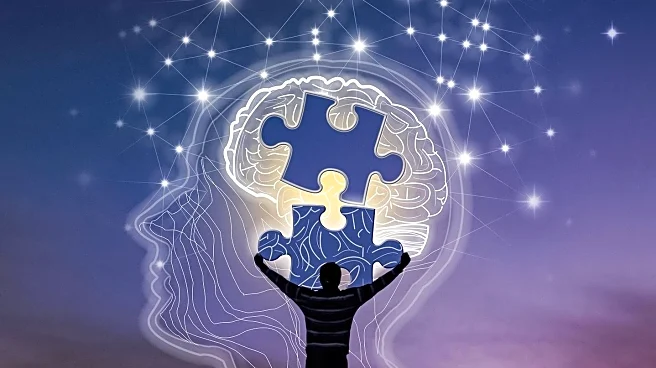What's Happening?
Recent research published in the journal Intelligence has found that the peak of brain function occurs much later in life than previously thought. The study highlights that psychological traits such as conscientiousness
and emotional stability reach their maximum in later years, with conscientiousness peaking around age 65 and emotional stability at 75. Other cognitive abilities, including moral reasoning and resistance to cognitive biases, improve into the 70s and 80s. Despite these findings, older individuals often face challenges in the workforce due to ageism, as evidenced by a survey showing 90% of workers aged 40 or older experiencing ageism at work. The Age Discrimination in Employment Act of 1967 aims to protect older workers, but age-based prejudice persists.
Why It's Important?
The study's findings challenge common perceptions about aging and cognitive decline, suggesting that older individuals may possess enhanced decision-making and leadership capabilities. This has significant implications for workforce dynamics, as it calls for a reevaluation of age-related biases in hiring and employment practices. Older workers could be seen as valuable assets, particularly in roles requiring judgment and experience. However, the persistence of ageism in the workplace highlights the need for more inclusive policies and practices that recognize the strengths of older employees.
What's Next?
The study's author, Gilles E. Gignac, advocates for age-inclusive hiring and retention practices, suggesting that evaluations should be based on individual capabilities rather than age. This could lead to changes in employment policies and a shift in societal attitudes towards aging. Employers may need to reconsider mandatory retirement ages and invest in training programs that leverage the strengths of older workers. Additionally, public awareness campaigns could help combat ageism and promote the benefits of a diverse age range in the workforce.
Beyond the Headlines
The findings may influence cultural perceptions of aging, encouraging a shift from viewing midlife as a decline to recognizing it as a period of peak cognitive function. This could impact how society values older individuals, potentially leading to greater respect and opportunities for those in their later years. The study also underscores the importance of lifelong learning and mental stimulation to maintain cognitive health, which could drive interest in educational programs and activities for older adults.









